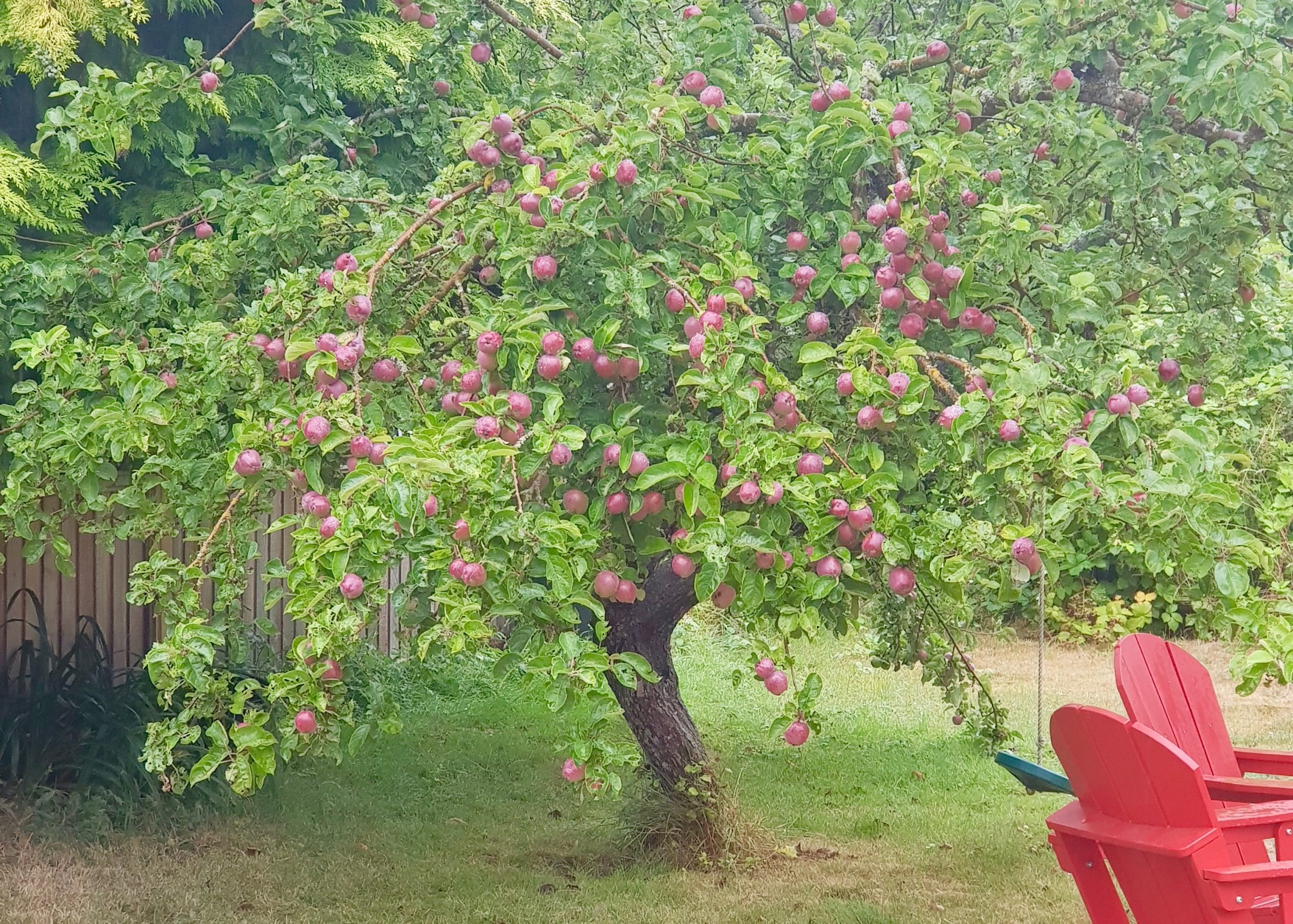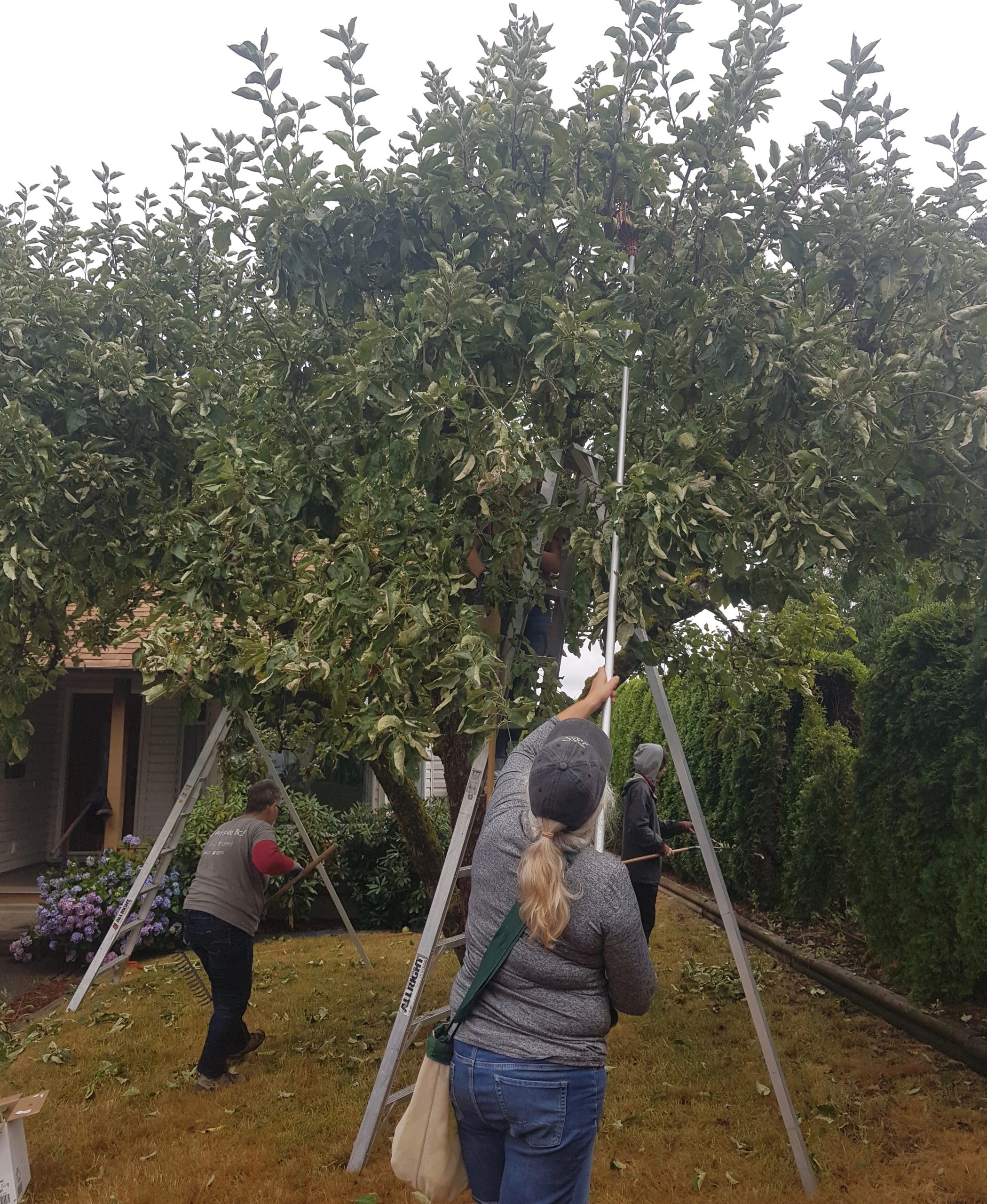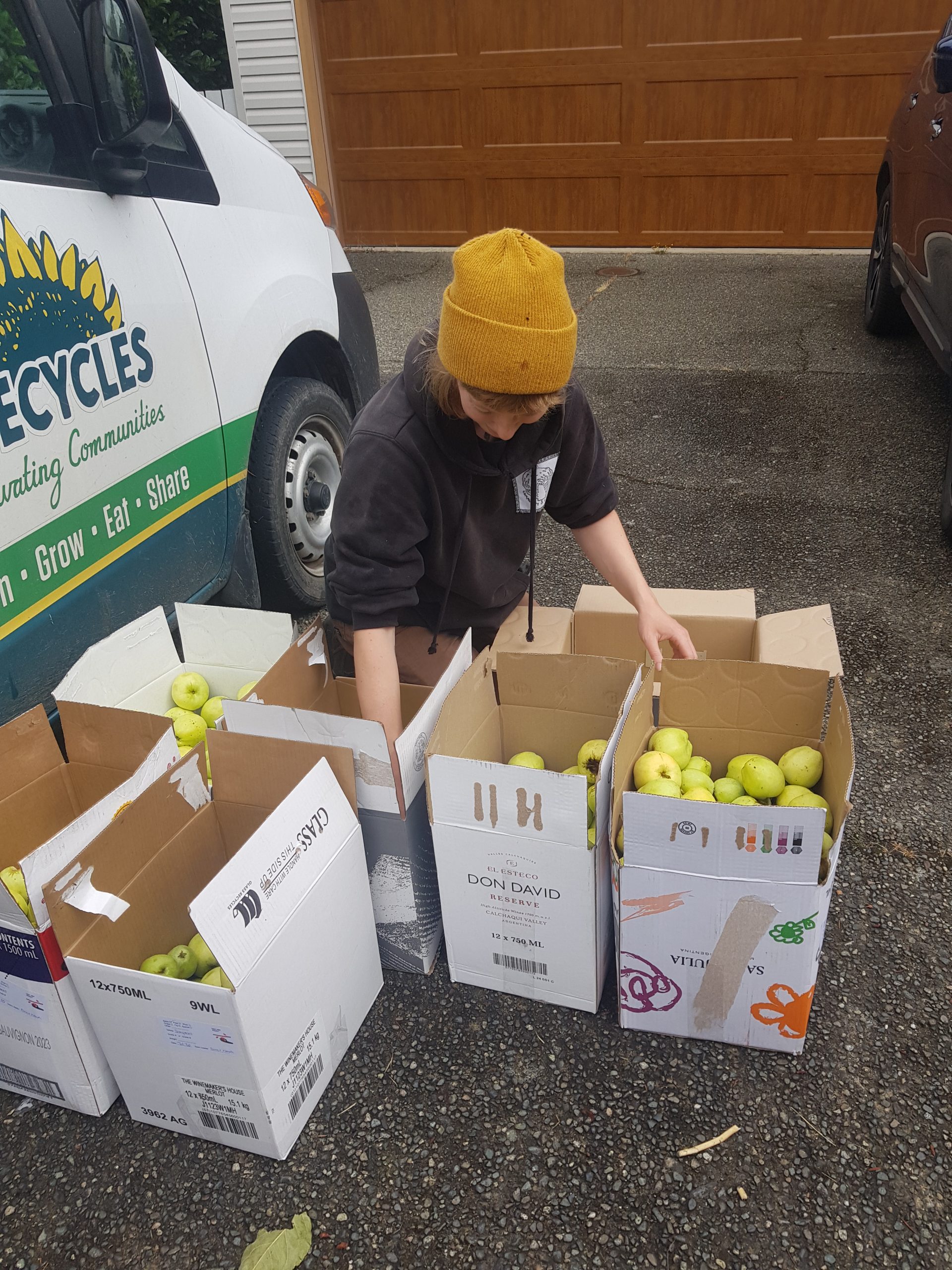Join the Martlet for a day with the Fruit Tree Project — and combat food waste one apple at a time

Photo by Fernanda Solorza.
As summer warms the vibrant streets of Victoria, fruit trees of all sizes and kinds ripen, ready to nurture the land’s inhabitants. However, most of the fruit will not be consumed, as it’s either too unattractive to sit on a supermarket shelf or inaccessible to most, closed in by backyard fences. Around 35.5 million tons of food are wasted annually in Canada — and backyard fruit is one preventable contributor, according to a local initiative.
On the drizzly morning of July 30, I left my home without having breakfast to see what the Fruit Tree Project (FTP) — a non-profit based in Victoria — was all about. The air buzzed with activity and my stomach grumbled before being silenced by a coffee shop chocolate chip cookie and side-street blackberries.
After just a few minutes of waiting, the FTP van arrived, alongside three volunteers ready to face the cold rain and harvest as much fruit as possible. According to project manager Ella Swan, the FTP’s success is thanks to their passionate volunteer base. The FTP has over 100 active volunteers who help the project harvest and redistribute as much fruit as possible. For the day, I would be one of them.
The FTP has become a cornerstone in addressing food security by harvesting and redistributing backyard fruit. The FTP ensures that fruit that would otherwise go to waste is distributed to those in the community who need it. This process relies on community service and connection. By linking dedicated volunteers with fruit tree owners in the Greater Victoria region, the FTP distributed 21 447 pounds of produce in the community last season.

Photo by Fernanda Solorza.
According to Love Food Hate Waste Canada, a national zero waste council, fruits and vegetables comprise 45 per cent of domestic food waste. Additionally, a study by the BC Centre for Disease Control found that, as of 2018, one in eight people experience food insecurity. There is obviously a demand for the FTP’s work, and a lot more work available to the organization.
There are multiple reasons an individual can experience food insecurity, including unemployment, lack of affordable housing, chronic health conditions, and discrimination. A survey by the UVSS found that 63.8 per cent of students at UVic are experiencing some level of food insecurity. This insecurity can range from limited food selection — which likely compromises nutritional quality — to going days without food.
There are many roles for volunteers with the FTP to choose from, as I would soon learn. These include tree assessors, who are trained to gather crucial information helping to ensure a successful harvest, and fruit sorters, who grade and distribute harvested fruit — the “backbone” of the FTP operation. But the most popular volunteer role is, of course, joining outings as a fruit picker.
After a thorough orientation and safety spiel given by Harvest and Volunteer Coordinator Aimee Ernest and Harvest Support Worker Hannah Kirk, we all got to work picking apples from a family’s backyard apple tree. Apples that touched the ground were either composted or set aside for processing into products like apple juice. The biggest prize were the blushy red apples hanging in the branches. A piece of advice from Kirk: the easiest way to pick apples is not by pulling down or twisting — if you lift the apple upward, the tree will simply let go!
We moved to a different location after just under 45 minutes of picking. This time, we picked tangy green apples. Volunteers and staff talked about their everyday lives, their interests, and what they intended to do with their share of fruit. Plans for applesauce and family sharing made me happy. I was just planning on eating one with peanut butter.

Photo by Fernanda Solorza.
The FTP operates according to a community-sharing model. When volunteers pick fruit, the tree stewards are welcome to keep up to 25 per cent of the total fruit collected. Another 25 per cent may be divided among volunteers, so when we were finished with the second tree, I was told I could take up to 14 pounds of apples. I took two: one for the walk home and another to eat with my peanut butter sandwich.
The remaining 50 per cent, combined with the apples the tree stewards and volunteers didn’t want, is brought back to the FTP warehouse in Viewfield, Esquimalt, where the apples are labeled as either A or B grade fruit.
“We want to make sure that, as much as possible, all of our best quality fruit [is] going to the people with the least purchasing power,” said Swan. “We never give any B grade fruit to the food rescue.”
“Something that makes a fruit B grade could be anything from a little bit of pest damage to a soft spot or it’s got a little blemish on it,” said Swan. “We want every piece of fruit that goes to the food rescue, that if we held the [fruit] in our hands, we would say ‘Oh, I would eat that.’”
In 2023, the FTP faced significant economic challenges due to rising operating costs and a lack of funding. Despite these obstacles, the dedicated team and Board of Directors have worked tirelessly to overcome these challenges by changing their leadership and reducing the number of services and programs they offer. Now, they are back and ready for a full harvest season, more determined than ever to make a difference in the community. This is the perfect time to get involved — volunteer with the FTP and be part of something impactful, ensuring that no backyard fruit goes to waste!






